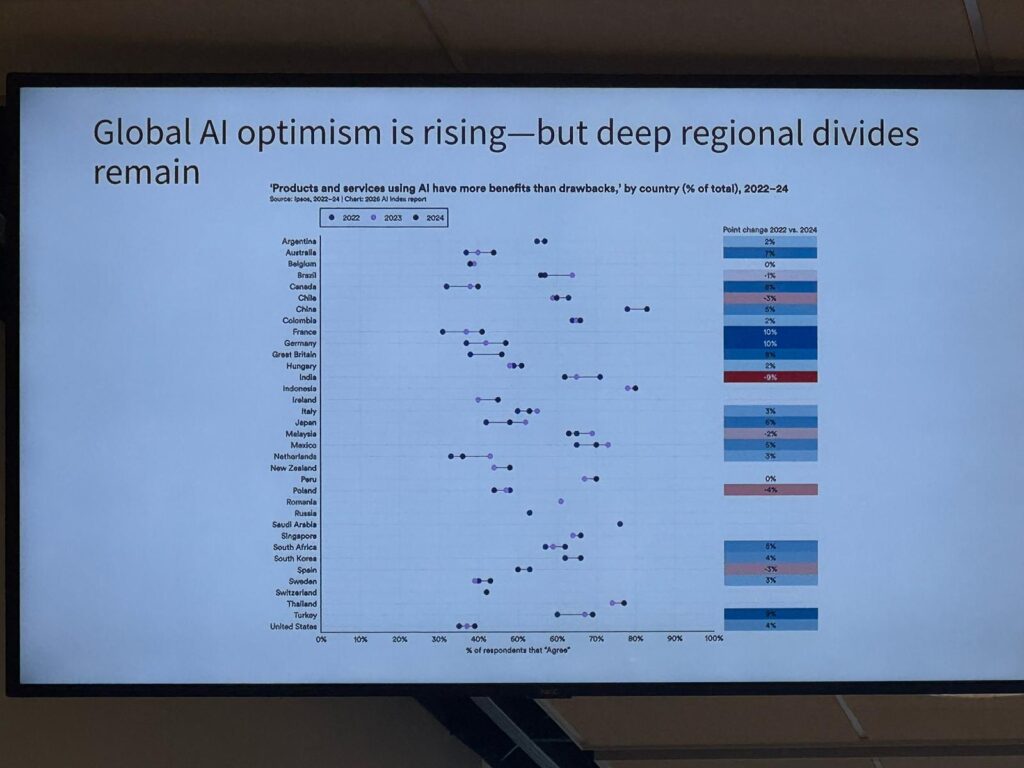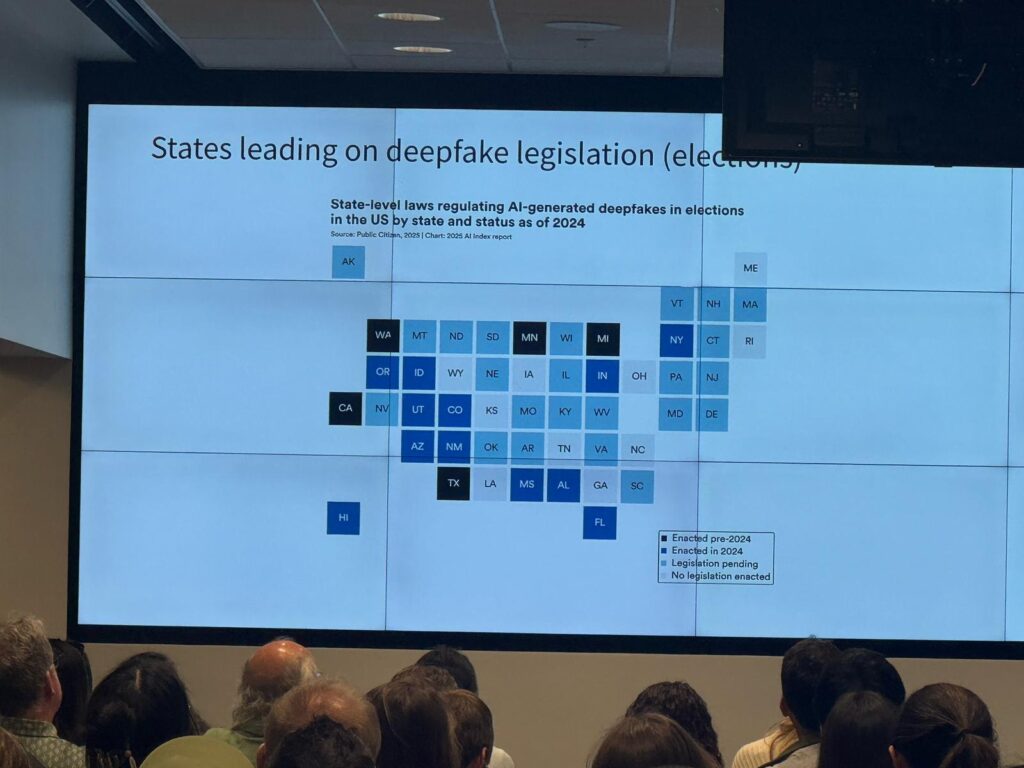
At Silicon Valley Certification Hub (SVCH), we are proud to celebrate and reflect on the launch of the 2025 AI Index Report by Stanford HAI, one of the most influential global efforts to track, assess, and democratize knowledge around artificial intelligence.
This year’s edition reveals powerful trends, disruptive shifts, and urgent challenges. As a hub committed to promoting ethical and informed AI adoption, these insights are critical for shaping our collective response—across industry, education, and policy.
Here are 10 key takeaways we believe every executive, policymaker, and AI practitioner should know:
- AI Reaches Human-Level Performance: Cutting-edge models now rival or outperform humans in areas like reasoning, image recognition, and language tasks—reshaping what “intelligence” truly means in machines.
- Benchmark Saturation Sparks Concern: New AI benchmarks such as GPQA and SWE-bench were rapidly conquered, raising questions about how we measure AI progress meaningfully and safely.
- Smaller Models, Greater Efficiency: Models like Microsoft’s Phi-3-mini show that size isn’t everything—efficiency and architecture now enable small models to compete with giants.
- Dramatic Drop in Inference Costs: From $20 to $0.07 per million tokens in just two years, the cost of querying large models has collapsed—paving the way for mass adoption, but also for unregulated use.
- Private Investment Hits Record Highs: In 2024, global AI investment surged to $252.3B—highlighting AI’s growing influence across all sectors of the global economy.
- China Closes the Gap in AI Quality: While the U.S. leads in quantity, China’s AI systems have significantly improved in quality and now dominate in publications and patents.
- AI Accelerates Scientific Discovery: From drug design to materials science, AI is now an essential research partner, driving innovation at unprecedented speed.
- AI Policy Activity Moves to U.S. States: With 131 state-level AI laws in 2024 alone, the U.S. governance landscape is decentralizing—creating both innovation and fragmentation risks.
- Open-Weight Models Rise Fast: Open-source AI is thriving. In just one year, the performance gap between open and closed models shrank from 8% to 1.7%—fueling transparency, equity, and global collaboration.
- Environmental Impact Grows: Despite efficiency gains, large AI model training now contributes significantly to CO₂ emissions. Meta’s Llama 3.1 alone produced emissions equivalent to 496 U.S. citizens annually.
At SVCH, we see this report as both a celebration of progress and a call to action.
AI is no longer an emerging technology—it’s a defining force of our era. But progress without governance, literacy, and responsible leadership risks amplifying inequality, misinformation, and ecological harm.
This is why we remain committed to training the next generation of AI-savvy professionals through our certifications, courses, and global partnerships. We encourage leaders across sectors to engage with the full 2025 AI Index Report and reflect on how your organization is preparing for the AI-driven future.


Let’s shape it responsibly, together.
#AIIndex #StanfordHAI #SVCH #ResponsibleAI #AIGovernance #AILeadership #ArtificialIntelligence #AITrends2025 #SustainableTech #OpenAI #AIforGood



0 Comments